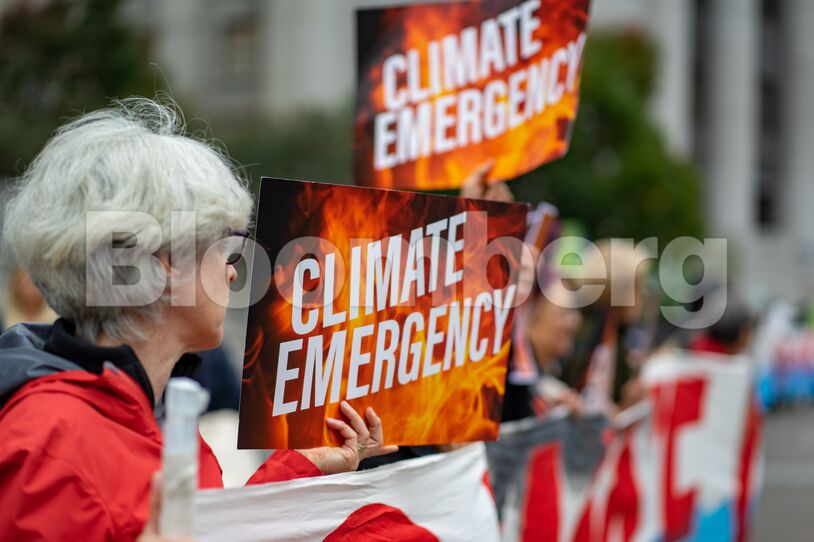By Erik Larson

Zweig revealed the change only after Justice Barry Ostrager, who will decide the case without a jury, asked him why he was focusing his closing remarks solely on the Martin Act and not the three other claims in the case, including common law fraud, which requires a showing of intent to deceive.
“I don’t mean to interrupt you, but there are three other claims that the attorney general advances in its complaint,” Ostrager said. “Are you going to address those claims as well?”
“Your honor, for purposes of this presentation, I’ll be focusing on the Martin Act,” Zweig said, without elaborating.
“Is that a concession that there is no common law fraud?“ the judge asked.
“Yes, your honor,” the state’s lawyer replied.
Zweig said the state’s claim of equitable fraud was also dropped, while a so-called executive law claim, which overlaps with the Martin Act, stayed put.
After lawyers for both sides had given their closing statements, Exxon attorney Theodore Wells returned to the podium in the crowded courtroom and criticized the state’s final move, suggesting the AG had dropped the claims for strategic purposes before the judge could rule against them due to a lack of evidence.
“We did not come to this trial and try this case for two weeks to have them stand up after the evidence has been presented — and after I have given my summation — and stand up and say we are not pressing the two claims that have caused, in many respects, the most severe reputational harm to the company and to the executives,” Wells said.
The lawyer said former Exxon Chief Executive Officer Rex Tillerson, in particular, had faced years of harsh allegations by the state, which accused the CEO of knowingly spearheading the scheme and trying to cover it up. Wells said Exxon and its officials deserve a ruling to clear their reputations.
Ostrager said he couldn’t do so because they were no longer part of the case. “This was their one opportunity to establish those claims in this courtroom and they’ve withdrawn those claims,” the justice said.
The attorney general’s office declined to comment.
James Fanto, a professor at Brooklyn Law School, said the AG’s decision to drop two crucial claims at the tail end of the trial “kind of says it all.”
“They never had much of a case,” said Fanto, who specializes in securities law. “They are falling back on the weak case of investor confusion.“
The case hinges on whether Exxon’s proxy cost — meant to account for the expected decrease in demand for fossil fuels — was supposed to be the same as an internal metric Exxon used, a greenhouse-gas cost applied to specific project proposals based on existing local taxes. Exxon says the state is trying to show a false discrepancy by conflating two carbon metrics that serve different purposes.
Before the ruckus over New York’s dropping of the two claims, Wells delivered a closing statement that mocked New York’s lawsuit, saying the state had falsely accused engineers and scientists of cooking up a massive scheme to mislead investors when in reality they were trying to do the right thing by planning for climate change.
“It’s a cruel joke,” Wells said.
New York sued in 2018 after a three-year probe, claiming it found evidence that Exxon sought to use a pair of 2014 shareholder reports to trick investors into thinking the company was planning properly for a low-carbon future and inflating Exxon’s value by as much as $1.6 billion.
Even without intent, Wells said the state failed to prove Exxon made a material misstatement when it revealed to an activist investor that it was using a proxy cost. New York also failed to prove its fraud allegations had led to a drop in the stock, he said.
At one point, Wells compared the investigation, which started under former Attorney General Eric Schneiderman, to Captain Ahab’s blind determination in Moby-Dick of “going after the great white whale.”
False Promises
Zweig, in his closing remarks, said Exxon’s statements to investors were like a company claiming it purchased an insurance policy and then simply didn’t. He cited evidence that Exxon backed out of applying the metric to the company’s most carbon-intensive venture, in the Alberta oil sands.
“Exxon can’t have it both ways,” he said.
Zweig also pointed to testimony from Exxon employees that he says shows they were confused by the company’s use of proxy costs, a hint that shareholders also could have been given the wrong impression.
“The question isn’t whether Exxon employees were good people or were trying their best,” or whether Exxon is to blame for climate change, Zweig said. “The question is whether Exxon’s disclosures were accurate, and the evidence shows they were not.”
The case is People of the State of New York v. Exxon Mobil, 452044/2018, New York State Supreme Court (Manhattan).
Share This:




 CDN NEWS |
CDN NEWS |  US NEWS
US NEWS 




























Trump Is Scaring Republicans Away From Saving the Planet